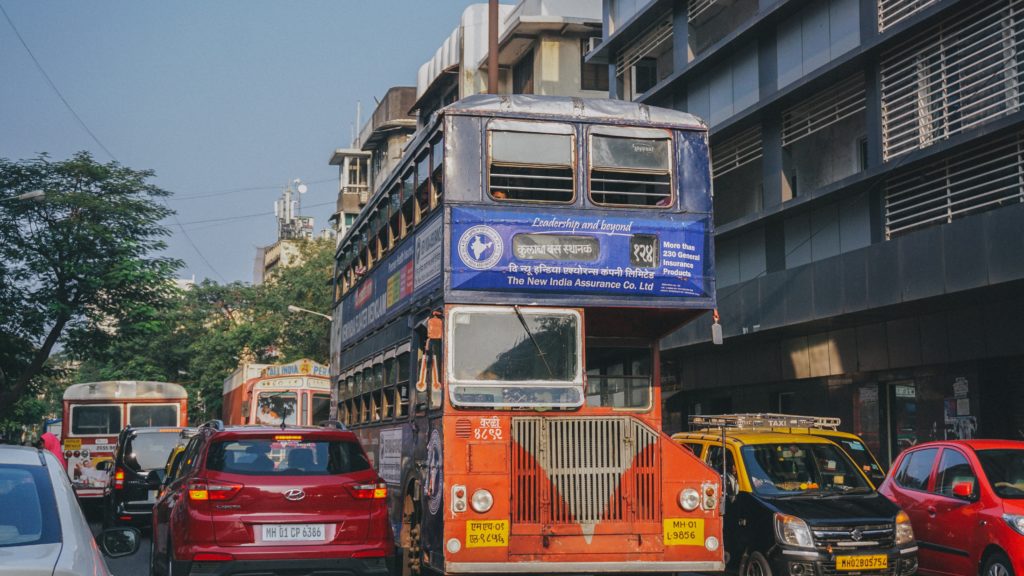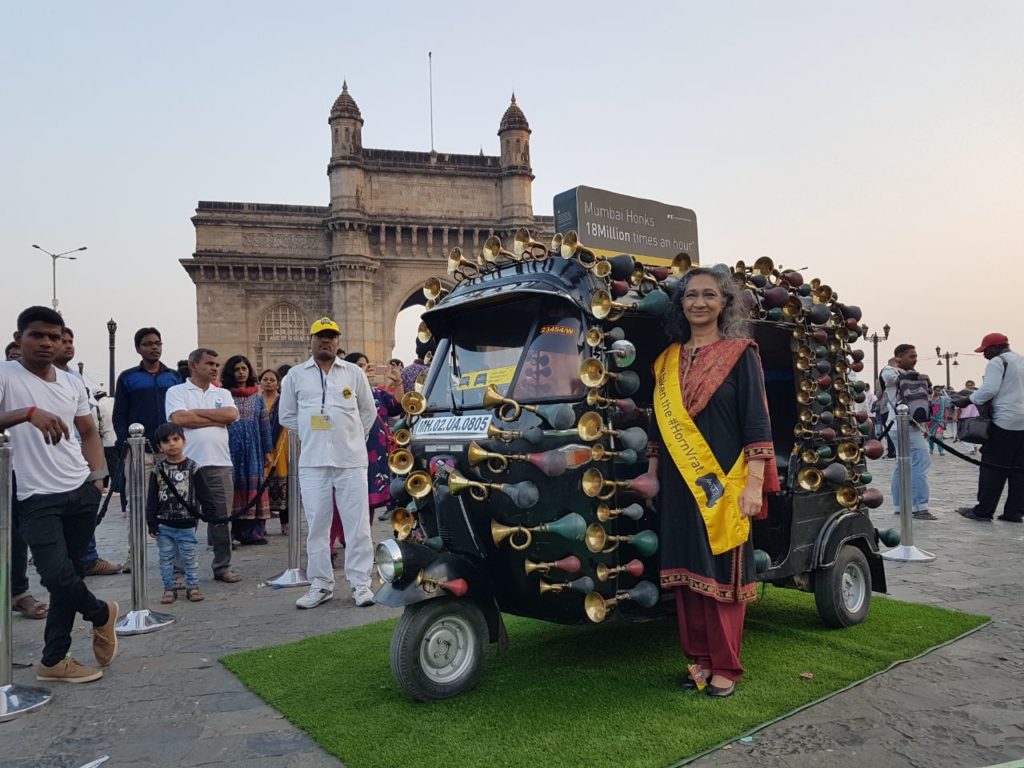The Unseen Polluter
Noise pollution is hidden and rarely measured, yet increasingly harmful to the environment.
When does sound become noise?
According to the World Health Organization, India is one of the noisiest countries in the world and hearing loss is prevalent. This was acknowledged by our former Minister of Health, Harsh Vardhan, who is himself an ENT doctor.
How does noise pollution impact people of different economic groups?
I have been recording noise levels in Mumbai since 2003. Initially, people called noise pollution an elitist ‘Western’ concept. However, when I started tracking complaints, many came from economically weaker communities. I have often heard from people working for daily wages that they cannot sleep and therefore cannot work. I have heard someone threaten suicide because they can’t stand the noise.
Can you tell us about your advocacy journey and experiences interacting with citizens?
When I began gathering data in Mumbai, no government agency was measuring noise. Now, the government has shifted policy and is measuring noise on a large scale. The pollution control board partnered with me to measure festival noise. As a result, firecrackers from Sivakasi, Tamil Nadu, which are distributed across the country, have reduced decibel levels from 140+, and this year were all within the permissible decibel levels. From a 100% violation in 2008 and 2010, this year there was zero violation.
We talk of world-class buildings, we want to become a world-class city with world-class standards, but we don’t enforce those standards in the building phase, which is going to last at least 20 more years given the volume and scale of the projects in Mumbai alone.
Awareness, enforcement, and action, however, are completely different things. At first, no awareness of this issue existed at all. However, over the last 19 years this has changed, and today almost everyone is aware that noise is harmful. This can be seen in the nature and number of complaints. Earlier, people would think, “I am very sensitive, it’s just me who’s being impacted,” but when you start getting hundreds of such calls, then you have data too. As I work independently and don’t have enforcement mechanisms at my disposal, I advise these individuals to complain to the police control room. This they have done in such large numbers that in 2020, noise pollution complaints were the second-largest environmental crime in Maharashtra. You need that critical mass of complaints to initiate behavioral and societal change. I think we are getting there.

Despite this construction noise has been on the rise; we are told that 40% of Mumbai is going to be broken and reconstructed. Construction causes a huge amount of noise pollution. Levels of enforcement differ, and you’re likely to hear from people that construction noise can’t be helped. We talk of world-class buildings, we want to become a world-class city with world-class standards, but we don’t enforce those standards in the building phase, which is going to last at least 20 more years more given the volume and scale of the projects in Mumbai alone.
What are some of the challenges to reducing noise pollution?
Several of the mitigation measures require money. The question is how much we want to invest in changing, in educating people and using our technological capabilities (noise barriers, better construction equipment) to move forward.
A builder will say they are helping grow the city. Government will say infrastructure is required for the city’s betterment. A person bursting a firecracker wants their child to experience the joys of their childhood.
There is consensus that noise is damaging to health, but the easy thing to do is carry on the way you are. People make excuses, which translate into a larger discourse on culture and religion. There are multiple sides to every equation. A builder will say they are helping grow the city. Government will say infrastructure is required for the city’s betterment. A person bursting a firecracker wants their child to experience the joys of their childhood.
How does noise affect the ecosystem at large?
For the very first time, the UN has acknowledged that noise is a serious health hazard affecting all species, not just humans. Anyone who has a pet can tell you what happens when there are firecrackers – how dogs hide and get lost. The same effect has been documented for many other species. We know that many animals are terrified of loud noises because their hearing is different and more acute. We also know through a study, which was conducted in the UK quite recently, that across species, noise has very harmful effects. Birds abandon their nests and animals abandon their young ones because of noise. They even found that caterpillar heartbeats speed up when they are exposed to noise. We know that marine mammals are severely impacted by noise, that it disrupts dolphins’ and whales’ habitats.
What measures can people take to reduce noise pollution? Could you share examples of initiatives or awareness programs to help people gain more agency?
Mindset and social change of any kind takes time. Last year, one of the largest masjids (mosques) in Mumbai announced development of an app to conduct azaans (prayers) online, which shows a huge advance. There have been Navratri (public dance) festivals held using headphones instead of loudspeakers. The media has played a role in increasing awareness. We have partnered with newspapers on campaigns in the field where volunteers explain to people why they should not honk.

Through an initiative across municipal schools, the government of Maharashtra, has created more awareness amongst children. In 2018, they declared a “no honking” year, and partnered with us and the auto rickshaw union on an awareness campaign. A special rickshaw with 150 disabled old fashioned blow horns drove around the city with the message “Mumbai honks 18 million times an hour” on the top.
An organization called The National Environmental Engineering Research Institute (NEERI) has developed a free app called noise tracker to measure sound using your phone. The Mumbai police have accepted this app for making official complaints. We have recently partnered with the traffic police to release a booklet informing citizens what they can do.
I am also very hopeful that younger people who are more environmentally conscious than my generation are going to do these things, across the board.
